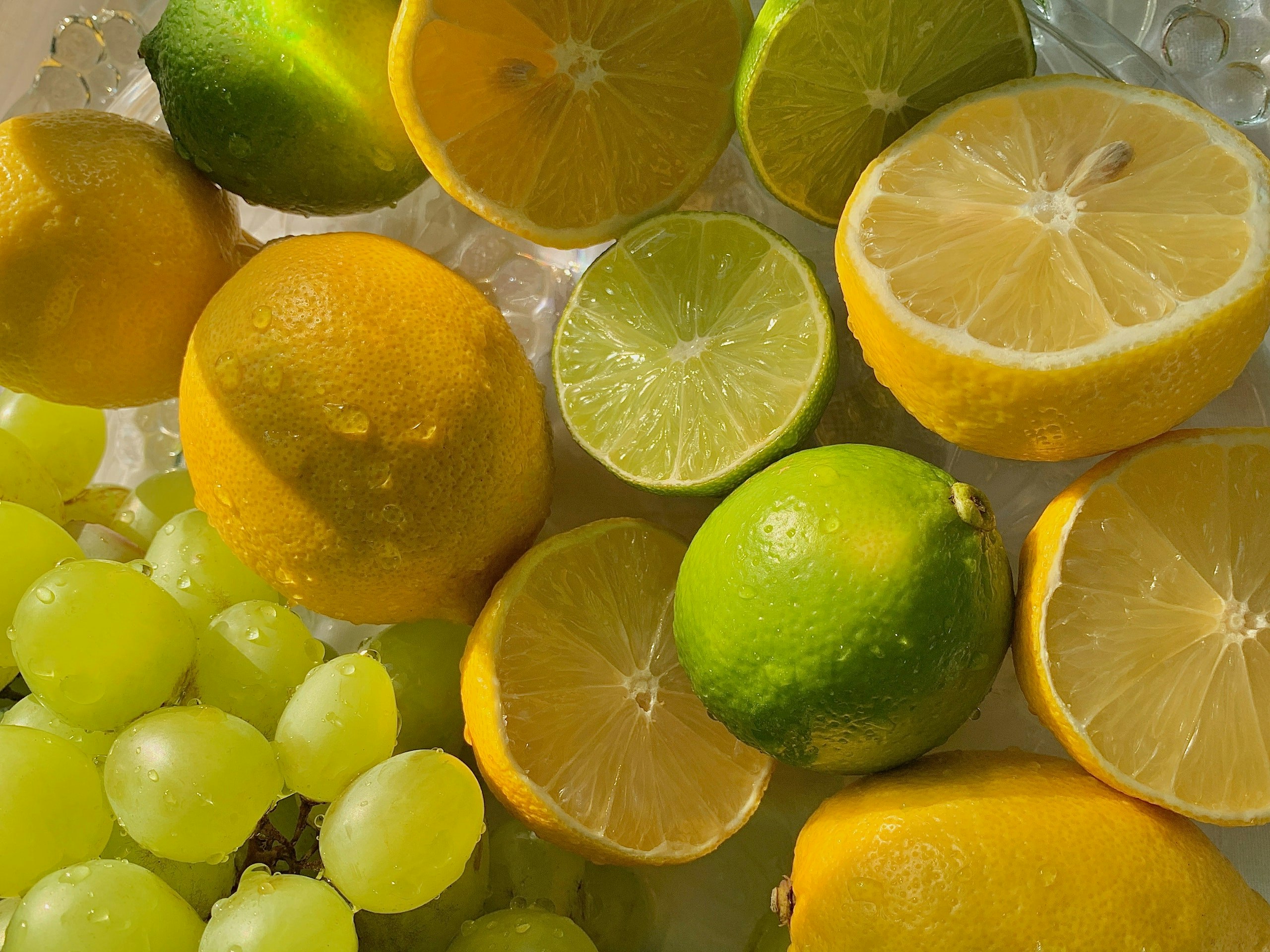Yes, both lemon and lime juice contain citric acid. This is what gives them their tart, sour taste. Citric acid naturally occurs in citrus fruits like lemons and limes. The amount of citric acid in the juice can be different depending on the type of citrus, the size of the fruit, and how ripe it is. Normally, lemon juice has about 5% to 6% citric acid (1.44g per oz), while lime juice has around 4% to 5% (1.38 grams per oz). These levels may differ depending on the type of lemons and limes you're using.
How Much Citric Acid in Lemon Juice vs. Lime Juice
Citrus fruits are not just made up of citric acid. Lemons contain other acids like malic acid, ascorbic acid, oxalic acid, tartaric acid, and lactic acid. The same goes for limes, oranges, and grapefruits, but the ratios of these acids may vary. They also have a bit of salt, sugar, and sulphides.
When it comes to lemon and lime juice, citric acid is the dominant acid compared to the others.
Fresh squeezed or cold-pressed lemon juice contains approximately 1.44 grams of citric acid per ounce. Lime juice, on the other hand, has a citric acid content of about 1.38 grams per ounce. To give you some context, sweet oranges have less than 0.5 gram of citric acid per ounce, while grapefruit has slightly more at just over 0.5 gram per ounce.
It's important to note that the citric acid content in commercially available lemon and lime juice products can vary significantly.
Taste Difference Between Lemon and Lime Juice
Lemon juice and lime juice are both tangy and acidic, but lemon juice is more acidic compared to lime juice. The difference in acidity and taste is because of the different kinds of acids found in each juice. The tartness in lemons gives a sour taste, while the acidic taste of limes is bitter.
Both juices can be used for making cocktails and other beverages, but lemon juice is more commonly used in mixed drinks because it is less acidic than lime juice.
Health Benefits of Citric Acid in Lemon and Lime Juice
The citric acid present in lemon and lime juice contributes to several health benefits. Here are some of the potential health benefits associated with the citric acid found in lemon and lime juice:
- Kidney Stone Prevention: Citric acid can help reduce the risk of kidney stone formation. It binds to calcium in the urine, inhibiting the formation of certain types of kidney stones. Regular consumption of lemon or lime juice, which are rich in citric acid, can increase urinary citrate levels and promote kidney stone prevention.
- Digestive Health: Citric acid has been shown to stimulate the production of digestive enzymes, aiding in digestion and nutrient absorption. It can also help alleviate symptoms of indigestion, such as bloating and heartburn.
- Antioxidant and Anti-inflammatory Effects: Citric acid, along with other compounds found in lemon and lime juice, acts as an antioxidant and exhibits anti-inflammatory properties. These properties help combat oxidative stress, reduce inflammation, and protect cells from damage caused by free radicals.
- Immune System Support: The citric acid content in lemon and lime juice contributes to their high vitamin C content. Vitamin C (ascorbic acid) is essential for a healthy immune system, as it supports the production of white blood cells and enhances the body's defense against infections.
- Skin Health: Citric acid can promote skin health by acting as an exfoliant and aiding in the removal of dead skin cells. It can help brighten the skin, improve skin texture, and reduce the appearance of dark spots and blemishes.
Possible Negative Health Effects of Lemon and Lime Juice
Eating or drinking a lot of raw citrus fruits or juice, particularly limes or lemons, can cause acid reflux, nausea, or discomfort in the stomach. It's important to remember that while lemon and lime juice have some health benefits due to their citric acid content, consuming too much of it or consuming it in concentrated forms can harm tooth enamel. To enjoy the health perks without any negative effects, it's best to have lemon and lime juice in moderate amounts as part of a balanced diet. Additionally, limes are less acidic and are therefore easier on sensitive stomachs. In conclusion, go easy on the citrus and enjoy the goodness they offer!



Comment